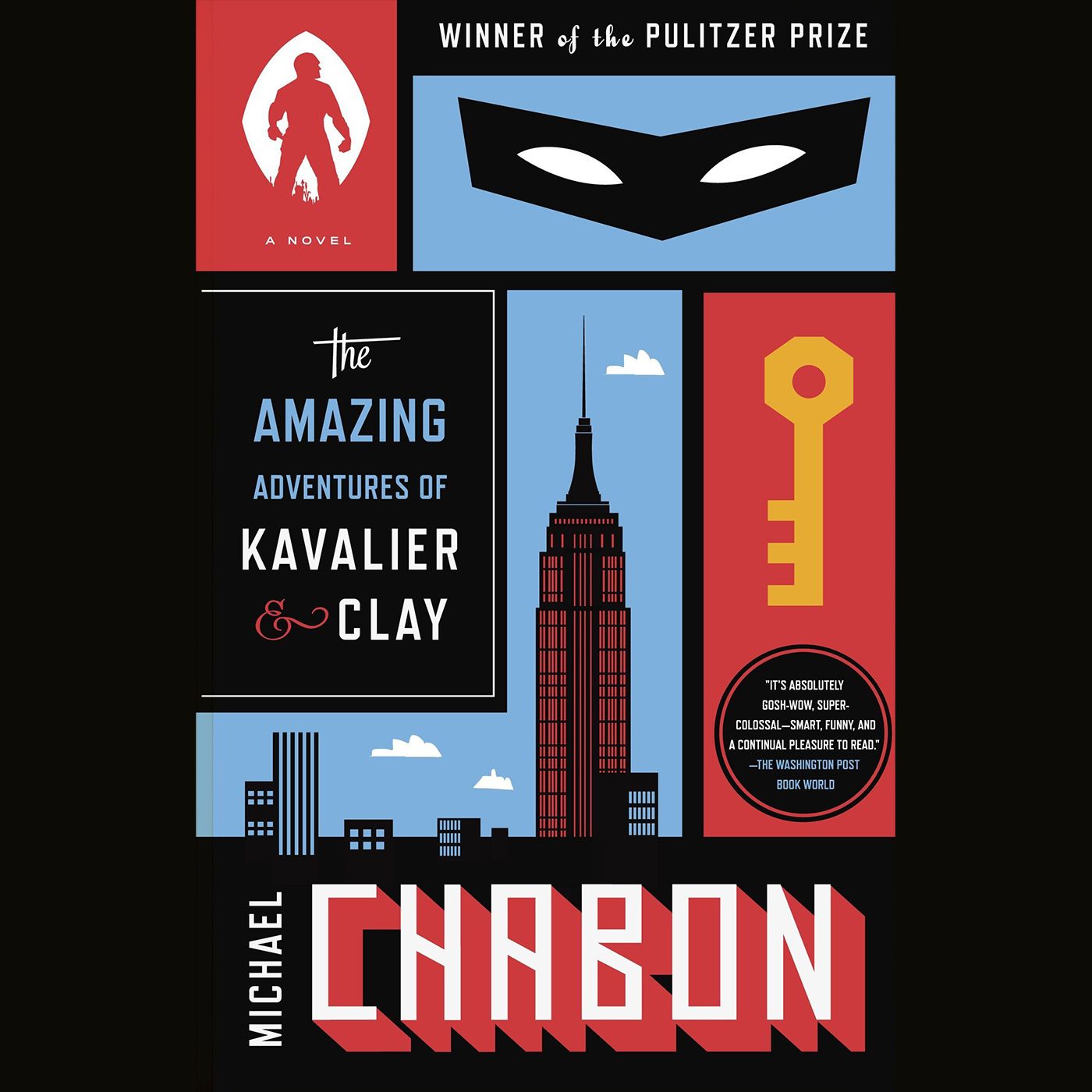
The Amazing Adventures of Kavalier & Clay by Michael Chabon
This novel was released in 2001, then subsequently won the Pulitzer Prize. I admired Chabon's previous books and I began to read The Amazing Adventures of Kavalier & Clay a few years ago after reading Wonder Boys (I absolutely LOVED Wonder Boys). But I had to put Kavalier & Clay down at the time because, mostly, I didn't have the necessary attention span for it. There is a density and intricacy to Chabon's sentences that require a certain amount of reader fortitude; a distracted mind will not find comfort in his prose. This time around, I found this novel to be a very enjoyable read and a marvelous book. It certainly deserves the praise and accolades it has received.
Here's this novel's brief description: Joe Kavalier, a young Jewish artist who has also been trained in the art of Houdini-esque escape, has just smuggled himself out of Nazi-invaded Prague and landed in New York City. His Brooklyn cousin Sammy Clay is looking for a partner to create heroes, stories, and art for the latest novelty to hit America - the comic book. Drawing on their own fears and dreams, Kavalier and Clay create the Escapist and Luna Moth, inspired by the beautiful Rosa Saks, who will become linked by powerful ties to both men.
If you are familiar with this era of the Comic Book Golden Age (1930s – 50s), then some of this story will seem a little familiar. Kavalier and Clay serendipitously propose and create a comic book hero called The Escapist for a disinterested businessman. He agrees to publish their comic book after learning of the popularity of Superman and the like and has them sign a boilerplate contract where their creation belongs to his company. This was commonplace at the time as a business practice. But when their creation becomes immensely popular, the creators are left out of the bulk of the wealth, having signed the ownership over to the company; many comic book creators during that time suffered the same fate, like Superman's creators Siegel and Shuster. Kavalier and Clay did make some nice dough as paid employees, but the owner received most of the fortune (millions of dollars). This part of the novel was meticulously told and Chabon's discussions with comic book legends Will Eisner, Stan Lee, and Gil Kane (as revealed in the novel's Author's Notes) bore great literary fruit.
After finishing this book, one of the more interesting aspects of the novel to me was Kavalier's background as an illusionist's understudy and the different levels this played out in the narrative. Obviously, his background in magic and escapism was an inspiration to the character of the Escapist. Chabon also reveals his great love for magic and sleight-of-hand, not only with enhancing Kavalier's personality and mode of operation, but with writing this novel. A good third of the novel reveals Kavalier's adeptness at vanishing, whether for self-preservation or to get what he wants. But ultimately, it's Chabon's sleight-of-hand that propels the narrative. Many, many times, there were moments where I couldn't believe that something was going to happen to Kavalier or Clay, then find out in subsequent chapters that what I feared was going to happen actually didn't happen. But Chabon's coup de grâce, his grand finale—literally in the last sentence of the book—is the revelation that the title of the novel may not be about who you thought it was. It was an amazing feat of literary perfection.
I only had a couple of issues with this novel. 1) Chabon can sometimes be a bit... long-winded. He has a peculiar habit of traipsing down asides like he has other stories he really wants to tell but shouldn't. And, as I said earlier, there is a density and intricacy to his prose that requires a certain amount of reader stamina and attention. 2) The content of the entirety of Part V of the novel is superfluous. If the almost 50 pages had been summarized in 5 pages, then the other 45 pages wouldn't have been missed—at all. After finishing the novel, I realized that this section of the novel (as unnecessary as it seemed content-wise at the time) was another bit of sleight-at-hand from Chabon, enhancing the powerful revelation in the last chapter. These two issues are quibbles, though.
The Amazing Adventures of Kavalier & Clay is a fantastic novel and well-worth the read. Funny, endearing, magical, and exquisitely written, I highly recommend it. I would give this novel 5 stars.
Buy the paperback on Bookshop: https://bookshop.org/a/152/9780812983586
Listen to the audiobook on Libro.FM: http://libro.fm/referral?isbn=9781469216423&rf_code=lfm85040

